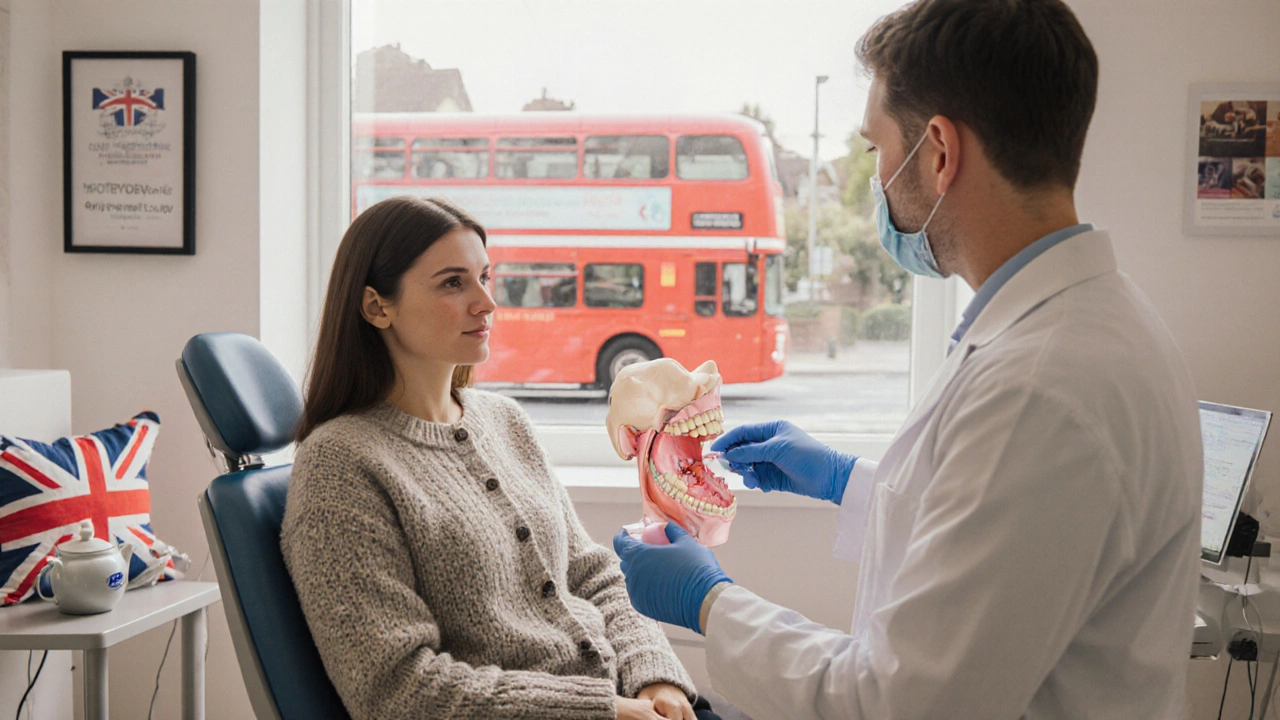Not Suitable for Dental Implants: Who Should Avoid Them and Why
Dental implants feel like the perfect fix for missing teeth, but they aren't a one‑size‑fits‑all solution. Certain health issues, lifestyle habits, or mouth conditions can turn an implant into a costly headache. Below we break down the most common red flags and point you toward safer alternatives.
Major health factors that block implants
Not enough bone. Implants need solid jawbone to hold the screw in place. If you’ve had long‑term tooth loss, bone can shrink dramatically. Without a bone graft, the implant simply won’t stay stable.
Uncontrolled diabetes. High blood sugar messes with healing. People with poorly managed diabetes often see infections or slow wound closure after implant surgery, raising the risk of failure.
Heavy smoking. Smoking narrows blood vessels and impairs tissue repair. Even a few cigarettes a day can double the chance of implant loss, so many dentists ask patients to quit before the procedure.
Active gum disease. Periodontitis erodes the structures that support both natural teeth and implants. Placing a screw into an inflamed mouth almost guarantees infection and eventual loss.
Radiation therapy to the head or neck. Radiation weakens bone and reduces blood flow. After treatment, many clinicians avoid implants or delay them for several months to give tissue a chance to recover.
Other reasons to think twice
Certain medications. Drugs like bisphosphonates (used for osteoporosis) can cause a rare bone‑death condition called osteonecrosis, especially after oral surgery. If you’re on these meds, discuss alternatives thoroughly.
Age and growth. Teens whose jaws are still growing shouldn’t get permanent implants; they can shift as the bone matures. For older adults, overall health matters more than age alone.
Medical conditions that affect healing. Auto‑immune diseases, chemotherapy, or severe cardiovascular problems can all slow recovery, making implant surgery riskier.
When any of these factors apply, it’s smart to explore other ways to fill the gap.
Safer tooth‑replacement options
Dental bridges. A bridge uses the adjacent teeth as anchors, avoiding surgery altogether. Modern bridges look natural and are quicker to place.
Removable dentures. Good for multiple missing teeth, especially when bone loss is extensive. Advances in denture materials mean they fit tighter and feel more comfortable.
Mini‑implants. Smaller than regular implants, they need less bone and often don’t require grafts. They’re a middle ground for those who want a fixed solution without full‑size surgery.
Resin‑bonded bridges (Maryland bridges). These use a thin metal or composite wing bonded to the back of neighboring teeth, preserving more tooth structure.
Before deciding, schedule a comprehensive exam. Your dentist will take X‑rays, evaluate bone density, and run a health questionnaire to spot any hidden risks.
Bottom line: dental implants work wonders for many, but they’re not right for everyone. Knowing the warning signs early can save you time, money, and discomfort. If you fall into any of the categories above, talk openly with your therapist about the best alternative for a healthy, confident smile.

Who Should Avoid Dental Implants? Key Factors That Disqualify Candidates
Learn which health conditions and habits make you unsuitable for dental implants, how to address them, and the alternatives available for a confident smile.
Categories: Dental Implants UK
0
